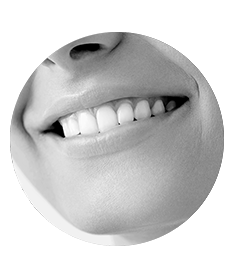As we age, our dental health often takes a back seat, giving way to other health concerns. For Ohio’s senior citizens, maintaining good dental health becomes even more crucial for the sake of that charming smile and general health and nutrition.
From Springfield to Hilliard, Powell to the rest of the state, this comprehensive “Dental Health Guide for Ohio’s Senior Citizens will provide the knowledge to keep your smile bright and healthy.
However, before we jump into the heart of the matter, let’s begin by understanding why dental health is crucial for senior citizens and what makes Ohio unique. Remember, this isn’t just about maintaining a brilliant smile; it’s about ensuring a better quality of life.
Let’s get started.
Understanding the Importance of Dental Health in Seniors

For senior citizens, maintaining good dental health is not merely about preserving a radiant smile. It is critical to overall well-being, influencing everything from nutrition to social interactions.
Some reasons why dental health is so crucial for seniors are:
Oral Health’s Role in General Health
Beyond nutrition, oral health is significantly tied to our overall health.
The mouth acts as a gateway, and poor dental hygiene can pave the way for infections and diseases.
Persistent oral diseases can even increase the risk of severe conditions like heart disease, stroke, and diabetes. It can also exacerbate existing respiratory diseases.
Impact on Social Life and Mental Well-being
Issues like bad breath or discolored teeth can cause embarrassment, reducing social interactions. Conversely, maintaining a healthy smile can boost confidence and contribute to an active social life.
Aging and Specific Dental Health Concerns
With age, senior citizens are more likely to experience specific dental health issues, such as:
- Gum diseases
- Root decay
- Dry mouth
- Oral cancer
If left untreated, these conditions can worsen over time, causing discomfort and affecting general health.
Health Monitoring Through Oral Health
Interestingly, oral health serves as a barometer for systemic health. Regular dental check-ups can provide early detection of diseases like
- Osteoporosis: This condition often affects jawbones leading to tooth loss and periodontal disease. Dentists can spot signs of jawbone density loss during X-rays or note changes such as loose teeth or receding gum lines, which can suggest osteoporosis.
- Diabetes: Symptoms such as dry mouth, gum inflammation, or increased susceptibility to infections can signal uncontrolled blood sugar levels. Dentists are often the first to detect these signs during a routine checkup, which can lead to early diagnosis and management of diabetes.
- Certain types of cancers: Dentists look for unusual sores, lumps, or discolorations in the mouth, which could be early indicators of oral or throat cancer. Some dentists might also be able to identify signs associated with other cancers, like pancreatic cancer, as certain oral bacteria are more prevalent in patients with this condition.
Dental Health Concerns Unique to Ohio’s Senior Citizens

As with most health issues, many factors influence dental health –– from personal habits to geographic location.
Ohio’s senior citizens, in particular, face a unique set of dental health challenges brought about by regional lifestyle factors and specific local statistics.
The Role of Geography and Lifestyle
Living in Ohio offers a rich blend of city life and rural charm. However, lifestyle differences between rural and urban areas can lead to varying dental health outcomes.
For example, seniors in more rural parts of Ohio may have to travel longer distances for dental check-ups, potentially delaying timely care and treatment.
Moreover, lifestyle choices significantly influence dental health. Ohio’s traditional diet, rich in starches and sugars, can contribute to tooth decay if not balanced with adequate dental hygiene practices.
Similarly, the prevalence of tobacco use in Ohio, although declining, is still a concern, particularly among seniors. Both smoking and smokeless tobacco use is a known risk factor for oral cancer and gum diseases.
The Dental Health Picture for Ohio’s Seniors
According to a study, 23% of adults aged 65 and above have not visited a dentist in the past year. This statistic is concerning, considering regular dental visits are crucial for the early detection and treatment of oral diseases.
In terms of specific dental health issues, tooth loss is a notable concern for Ohio’s senior population. Data reveals that 17.4% of seniors have lost six or more teeth due to decay or gum disease. This rate of tooth loss can significantly impact a senior’s quality of life, affecting nutrition, speech, and self-confidence.
Regular Dental Care for Seniors: More Than Just Brushing and Flossing

While brushing and flossing are the cornerstones of good oral hygiene, dental care for seniors goes beyond these daily routines. As we age, our dental needs evolve, and so should our dental care practices.
Here, we delve into the broader aspects of regular dental care for seniors, emphasizing the importance of comprehensive oral hygiene and regular dental check-ups.
The Expanded Dental Hygiene Routine
A good oral hygiene routine for seniors involves brushing and flossing, cleaning dentures, and paying attention to gum health.
- Brushing: Seniors should continue brushing twice daily with a soft-bristled brush. An electric toothbrush is an excellent choice for those with arthritis or other conditions that make manual brushing difficult.
- Flossing: Daily flossing remains crucial to remove plaque build-up between the teeth and along the gum line.
- Denture Care: For those with dentures, daily cleaning is critical to remove food particles and prevent stains. Remember, dentures need rest, too, so allow them to soak overnight in a denture-cleaning solution.
- Gum Health: Seniors should consider using an antimicrobial mouthwash to maintain gum health and combat common problems like gingivitis.
Regular Dental Check-Ups
As mentioned earlier, regular dental visits are not just for addressing dental problems; they are preventive measures that help maintain optimal dental health. Dentists can spot early signs of oral health problems like gum diseases, dry mouth, or oral cancer during these check-ups, which are common among seniors.
Dental professionals can also provide personalized advice on oral hygiene practices, nutrition, and lifestyle habits for better dental health.
Customized Treatment Options
As we age, our teeth and gums inevitably face wear and tear. Fortunately, there are numerous treatment options available to manage and restore dental health:
- Dental Implants: For seniors in Powell, Ohio, and Springfield, Ohio, who have experienced tooth loss, dental implants can serve as a durable and long-term solution.
- Dentures: Both partial and full dentures offer an alternative for tooth replacement, and Hilliard, Ohio, has numerous expert practitioners in this area.
- Cosmetic Dentistry: Procedures like dental veneers and crowns in Springfield, Hilliard, and Powell, Ohio, can help improve the appearance of your teeth, boosting confidence.
- Full Mouth Reconstruction: For complex dental issues, full mouth reconstructions, available across Ohio, can restore both function and aesthetics.
Healthy Nutrition for Optimal Dental Health

While we often hear about how oral hygiene practices affect dental health, it’s equally crucial to consider the role of nutrition. The foods we consume can either support or sabotage our dental health.
Let’s delve into the world of healthy nutrition that contributes to strong teeth and healthy gums, particularly for our senior citizens.
The Balanced Plate for Dental Health
Like the rest of your body, your teeth and gums require a balanced mix of nutrients to stay healthy.
Here are some elements that should be a part of your diet:
- Calcium and Vitamin D: Dairy products, fortified plant-based milk, leafy greens, and fish with edible bones, like sardines, are excellent sources of calcium, which is necessary for strong teeth. Vitamin D helps the body absorb calcium and can be found in fatty fish, egg yolks, and fortified foods.
- Phosphorus: This mineral works with calcium to build strong teeth and bones. You can find phosphorus in protein-rich foods like meat, poultry, fish, milk, and eggs. Vegetarian sources include legumes, nuts, and whole grains.
- Vitamin C: Crucial for healthy gums, Vitamin C can be found in a variety of fruits and vegetables, like oranges, strawberries, bell peppers, and broccoli.
Foods to Embrace and Avoid
Certain foods can help promote dental health, while others might pose a risk:
- Embrace Crunchy, Water-Rich Fruits, and Veggies: Apples, celery, cucumbers, and carrots stimulate saliva production, which helps neutralize harmful acids and protect your teeth.
- Limit Sugary Foods and Beverages: Sugar feeds the bacteria in your mouth, leading to plaque build-up and tooth decay. Limit candies, cakes, and sugary drinks, including fruit juices.
- Avoid Sticky, Chewy Foods: These foods tend to stick to the teeth, increasing the risk of decay. If consumed, ensure they are followed by brushing or rinsing the mouth with water.
- Stay Hydrated: Drinking water regularly helps wash away food particles and moisten your mouth. This is particularly important for seniors who may experience dry mouth due to medications.
Special Considerations for Seniors with Dentures or Dental Implants
For seniors with dentures or dental implants, nutrition goes hand in hand with comfort and functionality.
If you’ve opted for dental implants in Powell, Ohio, or you’re a proud wearer of dentures from a dentist in Springfield, Ohio, remember:
- Start with soft foods and gradually include harder foods to help your mouth adjust.
- Cut food into smaller pieces to make chewing easier.
- Chew food evenly on both sides of the mouth to balance the pressure.
Dental Insurance and Financing for Ohio’s Senior Citizens

Financial considerations can often act as a roadblock to seeking dental care, particularly for seniors on a fixed income. Yet, maintaining good oral health is essential for overall well-being.
Fortunately, various dental insurance and financing options can help make dental care more affordable for Ohio’s seniors.
Let’s explore some of these avenues.
Dental Insurance Options
Dental insurance can provide significant cost savings for many seniors on preventive care and treatments. Here are a few types of dental insurance to consider:
- Medicare Advantage Plans: While traditional Medicare does not cover routine dental care, some Medicare Advantage Plans offer dental benefits. This coverage often includes preventive care like exams and cleanings, and some plans may help with the cost of fillings, crowns, or even dentures.
- Individual Dental Insurance: Several private insurance companies offer individual dental insurance plans. Coverage varies, but these plans often pay a portion of the cost for preventive care, fillings, crowns, root canals, and oral surgery.
- Discount Dental Plans: These are not insurance but offer discounted rates on dental services from participating providers. This could be a good option for seniors without dental insurance.
State and Local Resources
In Ohio, state and local resources can also help seniors get the dental care they need:
- Ohio Department of Aging: They offer programs to help seniors access affordable dental care. One such program is the Senior Community Services which provides wellness programs, including dental health.
- Local Health Departments: Many county and city health departments across Ohio offer dental clinics or programs for seniors.
Dental Care Financing Options
If insurance isn’t an option or doesn’t cover all costs, there are other ways to make dental care more affordable:
- Payment Plans: Many dentists, including those in Springfield, Hilliard, and Powell, Ohio, offer payment plans that allow patients to pay for their treatment over time.
- Care Credit: This is a credit card specifically for healthcare expenses, including dental care. It offers short-term financing options with zero or low-interest promotional periods.
Innovations in Dental Care Beneficial for Senior Citizens

Advancements in dental care technology and techniques have opened up new avenues for maintaining and improving oral health. These innovations benefit senior citizens, making procedures more efficient, comfortable, and effective.
Here, we will explore some of these breakthroughs and how they’re enhancing dental care for Ohio’s seniors:
Laser Dentistry
Lasers have revolutionized various aspects of dental care. They can be used for a wide range of applications, from diagnosing cavities to treating periodontal disease:
- Non-Invasive Procedures: Lasers can treat gum disease and cavities with less pain and bleeding than traditional methods. This means a more comfortable experience for seniors, especially those with sensitive gums or fear dental procedures.
- Precision: Lasers offer superior precision, preserving more of your healthy tooth during cavity removal.
Dental Implants and Dentures
Dental implants and dentures have been around for a while, but recent advancements have significantly improved their functionality and appearance:
- Improved Materials: Today’s dentures and dental implants are more durable and natural-looking. Materials like ceramic and porcelain are used for crowns, mimicking the look and feel of natural teeth.
- Customization: Modern technology allows for a high degree of customization. Whether it’s dentures from a dentist in Hilliard, Ohio, or dental implants in Powell or Springfield, these solutions are tailored to fit perfectly and match the color of your existing teeth.
Sedation Dentistry
Sedation dentistry has made dental procedures much more comfortable for patients, particularly those with dental anxiety or sensitivity:
- Comfort and Ease: Various sedation methods can help patients relax during procedures, transforming the dental experience into a more comfortable one. Sedation dentistry options are available in Powell, Springfield, and Hilliard, Ohio.
- Efficiency: With the patient relaxed, dentists can often perform procedures more quickly and sometimes accomplish multiple treatments in a single appointment.
Digital X-Rays
Digital X-rays are a game-changer in dental diagnostics:
- Reduced Radiation: Digital X-rays expose patients to significantly less radiation than traditional X-rays.
- Instant Images: The images are available instantly and can be enhanced to improve diagnosis. They can also be easily stored and shared electronically, improving communication between dental professionals.
Final Words: Smile Bright into Your Golden Years
A bright, healthy smile instills confidence and signifies good overall health. And while aging can bring specific dental health challenges, with understanding, preventive care, appropriate nutrition, and the assistance of dental innovations, these hurdles can be successfully overcome.
Blank Dental is committed to providing exceptional dental care tailored to the unique needs of Ohio’s senior citizens –– from primary dental care needs like regular cleanings and check-ups to more advanced procedures such as dental implants or full mouth reconstruction.
Book an appointment with us to maintain a healthy, vibrant smile for years.







